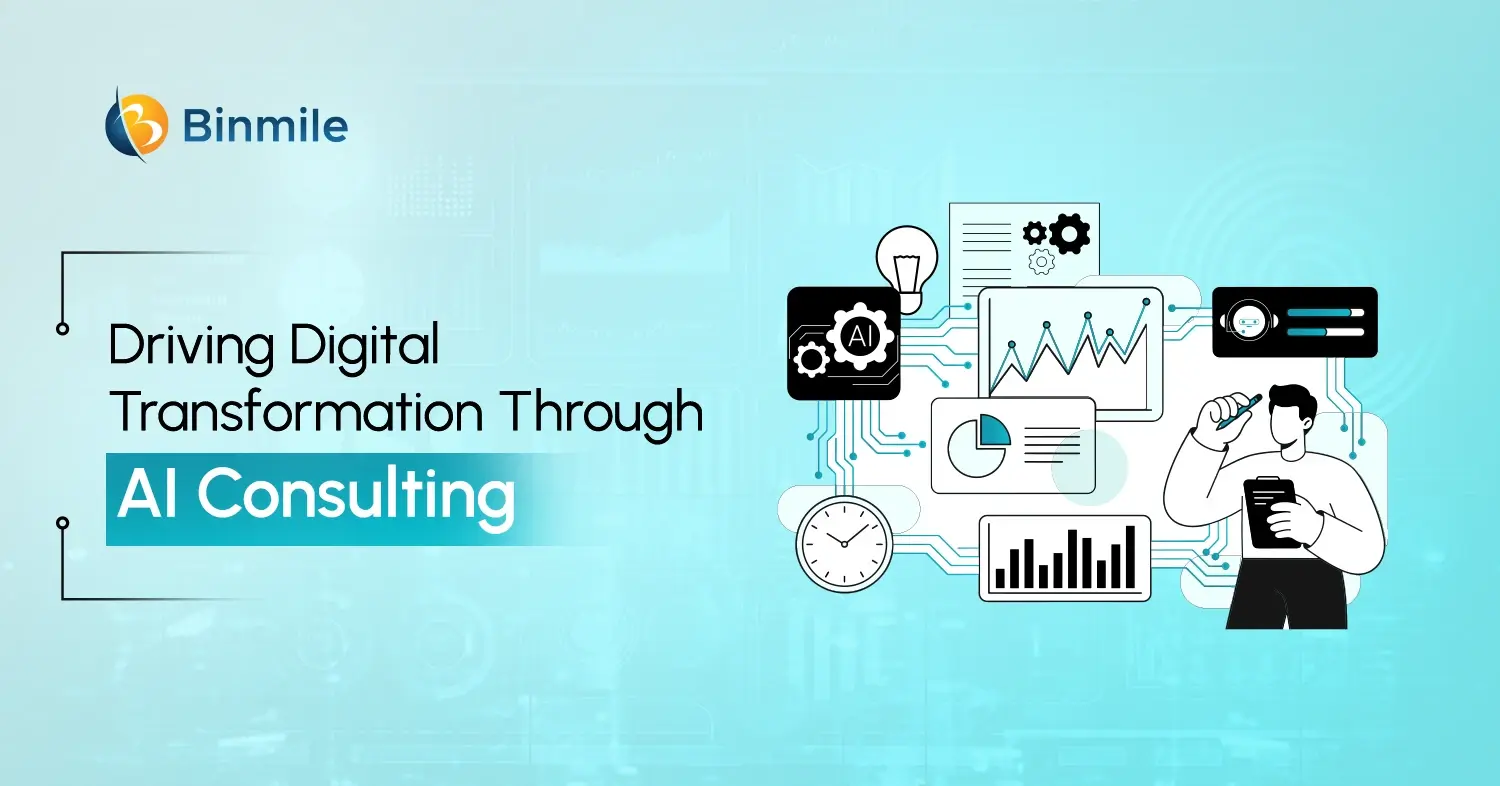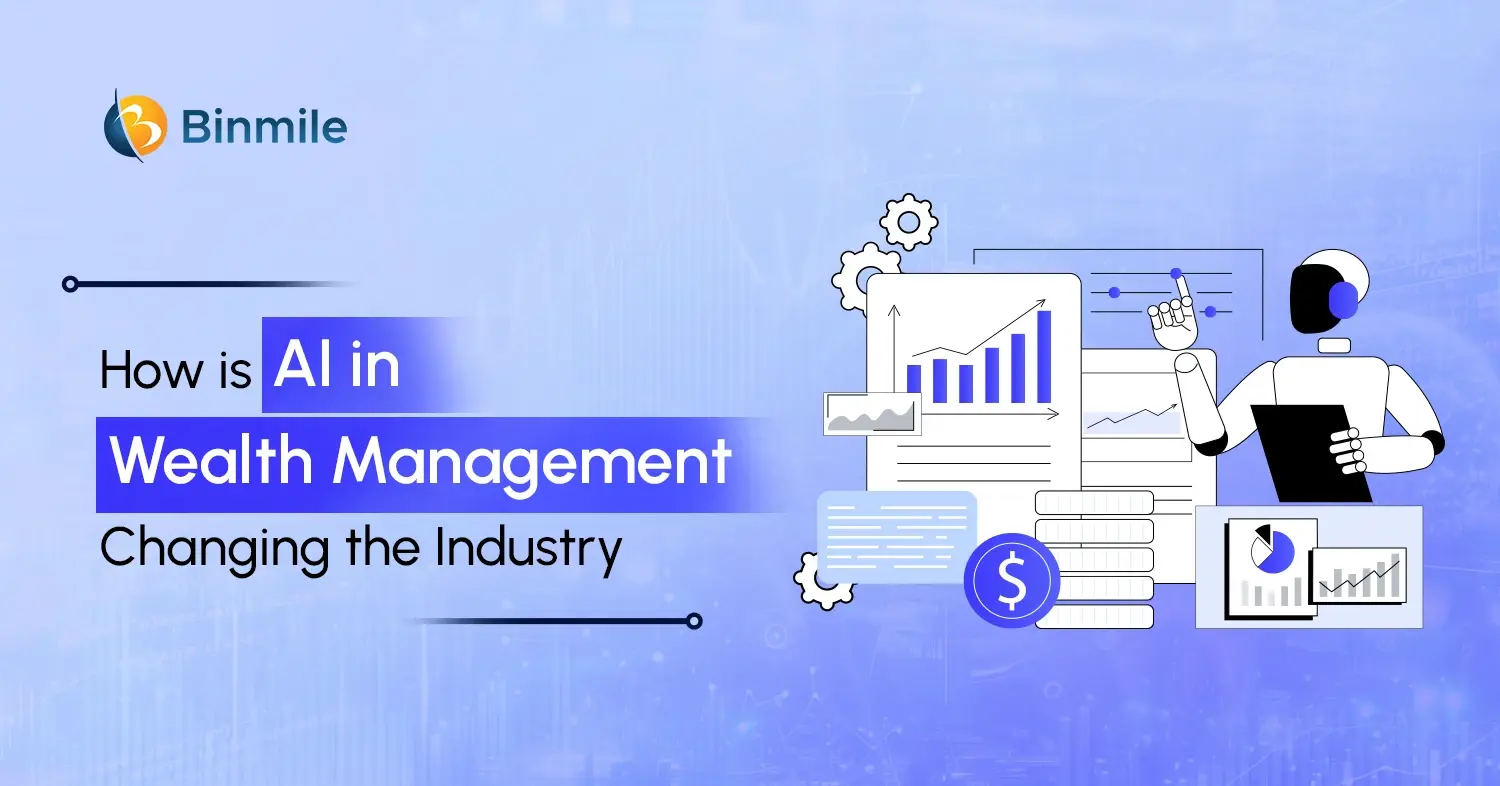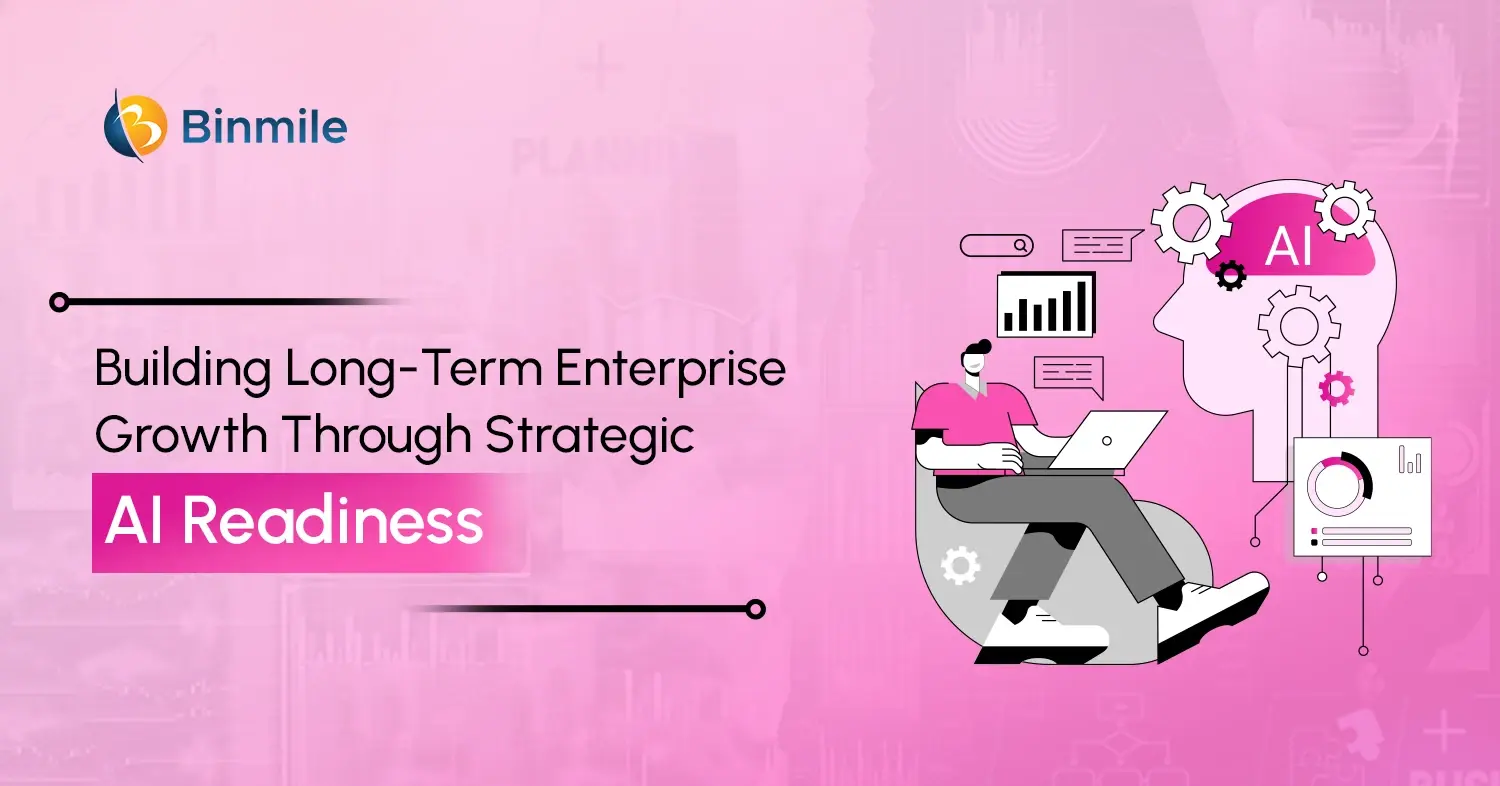Generative AI is playing a crucial role in turning imaginations into reality. Large Language Models (LLMs) have transformed the way businesses used to operate earlier. However, as per a 2024 survey performed by a global data and business intelligence platform, almost 50% of international business and cyber leaders have highlighted the advancement of adversarial abilities, like malware, phishing, and deepfakes as their biggest concern when it comes to the impact of Gen AI on cybersecurity. Additionally, 22% were highly concerned about data leakage and exposure of personal information through Gen AI. Therefore, topmost business leaders are forced to look for ways to prevent this technology from creating more bad than good. Data security in Gen AI entails protecting algorithms and data in AI systems that can generate new content while safeguarding AI’s integrity, offering secure data, and preventing unauthorized access.
To handle security and privacy issues in Gen AI deployments, companies must create and implement cybersecurity policies that comprise Artificial Intelligence. With that discussed, now it is time to take a look at the best ways to ensure data security and privacy in Gen AI deployments. But first, let’s begin with:
Why does Data Security in Gen AI Matter So Much?
Gen AI has been the most crucial technological advancement in the past decade. It improves organizational productivity and supports data-driven decision-making in the office environment. However, some serious security and privacy issues emerge with this massive potential that can result in severe consequences, including data breaches, high penalties, and broken confidence. Since the success of a business activity depends on data security, safeguarding sensitive data and supporting regulatory compliance makes sense to protect the reputation of an organization. As the reputation of an establishment depends on ensuring security and privacy in Gen AI implementations, it is essential to learn about risks that might occur when deploying Gen AI to your current business operations. Let’s understand those risks:
Major Risks Associated with Data Security in Gen AI
These are the risks associated with data security in Gen AI that can arise when implementing this cutting-edge technology into your business:
| Data Leakage and Breaches | Ineffective security measures can lead to data leaks, enabling unauthorized parties to get access to confidential consumer and company information. Such violations can have negative effects, such as monetary loss, legal challenges, and a reduction in stakeholder’s trust. |
| Adversarial Attacks | Gen AI models developed without prioritizing cybersecurity best practices are prone to adversarial attacks. Bite-sized, carefully created perturbations to enter data can translate into incorrect outcomes. These attacks can be utilized to change the behavior of the AI system, eventually resulting in dangerous decisions. For instance, an adversarial attack on a financial app could cause the AI technology to misunderstand a transaction, making fraudulent activities go unnoticed. |
| Model Inference Attacks | Attackers can misuse vulnerabilities in AI models to get key information using simple inputs if it is developed without ensuring modern app security resilience. A case in point here is that by partnering with a Gen AI model using particular inputs, a malicious actor might be able to grasp sensitive information about the data used to train the model. This type of attack, generally referred to as a model inference attack, presents a considerable threat to businesses, especially those belonging to healthcare and finance industries. |
Empower your enterprise with top-tier developers for secure GenAI deployment and scalable software solution

Key Challenges in Ensuring Data Privacy in Gen AI
Generative AI is mainly focused on data. And managing challenges associated with data security in Gen AI deployments requires strategic planning and powerful technical measures. The following table shows the core challenges that companies experience in Gen AI deployments and things that can be done to address them.
| Difficulty | Description | Solution |
|---|---|---|
| Risks of Sensitive Data Exposure | These models answer queries based on data that is used to train them. When trained on extremely valuable data, such models can create problems for data security & privacy in Gen AI, like revealing confidential information in responses to users. Since Gen AI models store and reuse the data, users must be familiar with the type of data they have been feeding into the model. | To minimize such troubles, it is suggested to:
1. Continuously sanitize training datasets and eliminate precious information without any hesitation. 2. Implement input validation mechanisms to discover and block confidential user inputs during inference. 3. Apply concepts like federated learning to process data locally, making sure top secret information never goes out of users’ environment. |
| Data Vulnerability | Generative AI models are trained on sizeable datasets and can frequently iterate. The storage and processing of such information develop loopholes for breaches and abuse. For instance, a medical business using Gen AI technology for patient diagnosis stores anonymized healthcare records. However, a poor storage system or unsuitable anonymization could disclose sensitive information to unauthorized access or re-identification attacks, tampering with data privacy in Gen AI. | To reduce such problems, it is advisable to:
1. Embrace robust encryption protocols for data at rest as well as in transit. 2. Adopt secure storage systems, like those aligned with standards like NIST’s Cybersecurity Framework. 3. Implement differential privacy tactics to make sure that individual data points can’t be traced back to particular users. |
| Compliance with Regulations | Establishments globally use Gen AI, but these companies must abide by strict privacy regulations. These regulations control data collection, usage, and storage to safeguard privacy in Gen AI. | Here are some must-follow compliances that your business should consider:
1. The California Consumer Privacy Act (CCPA) prioritizes California’s customer rights by mandating that companies unveil their data collection methods and align with requests to delete personal information. 2. The General Data Protection Regulation (GDPR), which needs to take user consent for data gathering, the right to data removal, and data reduction principles, is relevant to US companies doing business with the EU. 3. Additional regulations focus on sensitive data management in areas like medical (HIPAA) and finance (GLBA) industries to ensure SaaS security. |
NOTE:
To steer clear of serious penalties, organizations must align with the following regulations:
- GDPR: Not complying with this regulation can attract fines of up to €20 million or 4% of annual turnover globally, whichever is greater.
- CCPA: Failing to comply with the Central Consumer Protection Authority can attract fines of up to $7,500 per intentional breach and $2,500 per unintentional breach.
To reduce such troubles while availing mobile app development services:
- Businesses must perform Data Protection Impact Assessments (DPIAs) to discover compliance gaps.
- It is necessary to maintain thorough audit trails to show regulatory adherence.
Top 8 Practices for Implementing Data Security & Privacy in Gen AI

It is recommended not to risk data security & privacy in Gen AI when deploying this cutting-edge technology in operational systems. Secure deployment often results in the best performance and excellent customer service. Below are a bunch of suggested practices that companies must follow:
1. Design a Secure Gen AI System
Creating a secure Gen AI system is necessary, especially when dealing with confidential information. Also, when developing a secure Gen AI system, make sure to anonymize all data used in training and inference and encrypt them to protect privacy. Use federated learning to train models without centralized data storage and deploy edge AI solutions to process data locally for sensitive use cases. Merging decentralized learning techniques with encryption ensures data privacy and security in Gen AI by lowering data exposure while improving compliance with privacy regulations.
2. Implement Access Controls
Preventing unauthorized access is essential for safeguarding AI systems and the data they process. The best thing you can do to perfectly implement access controls is limit access to Gen AI systems based on user roles to reduce exposure to precious data and functions. Moreover, adding an extra layer of security to restrict unauthorized logins will only benefit in the long run. In case you are not able to do that alone, you can hire software developer from a leading AI development company to secure your AI system. Above all, do not forget to review access control policies regularly to comply with evolving business needs and regulatory requirements.
3. Ensure AI Model Safety
Gen AI models can reveal valuable information or demonstrate biases in the training data. You can ensure AI model safety by frequently assessing models to identify and address unexpected outcomes or suspected biases. Apply robust policies for handling data discovery, risk assessments, and entitlements to ensure data privacy in Gen AI. Outline clear operational guidelines to prevent Gen AI models from generating harmful or unethical results. Analyze model behavior and update governance rules to deal with evolving threats.
4. Manage Enterprise Data Safely
Gen AI often works with sensitive organizational information, so it needs strict data management practices to ensure data security in Gen AI. It is important to make sure that Gen AI systems only communicate with necessary, trivial datasets or anonymized data. Employ tried and tested tools to track anomalies in data access patterns or possible misuse. Make employees aware of the risks of Gen AI systems, like vulnerability to social engineering attacks. Because such training promotes a culture of responsibility by embedding data security into organizational processes.
5. Perform Vulnerability Assessment
Regular assessment of AI systems promises to find and fix weaknesses swiftly. Therefore, it is recommended to perform regular penetration tests and security audits to ensure regular vulnerability assessment and find risks in AI systems. Build and implement effective plans to address new vulnerabilities in the AI system. Organizations can strengthen this process by engaging AI pentesting services to uncover hidden flaws in model behavior, data pipelines, and integrations. Set up a feedback loop to incorporate evaluation outcomes into system updates by hiring an Android app security service provider.
6. Consider Monitoring & Logging
Monitoring user interactions, potential security events, and the Gen AI model’s behavior requires extreme analyzing and logging techniques. It is possible to react quickly to security risks only by:
- Discovering abnormalities or suspicious activities
- Repeatedly checking logs by getting insights into how the system works
- Identifying differences in natural behavior that can indicate security lapses or attempted attacks
Thus, executing comprehensive monitoring and logging is essential to support the overall security architecture.
7. Pay Attention to Prompt Safety
Well-designed prompts are imperative to ensure ethical and secure behavior of AI systems. For this reason, we suggest creating system prompts to align AI outcomes with ethical, precise, and secure guidelines to make sure of prompt safety. Prepare AI models to recognize and reject harmful prompts carefully. Limit the scope of prompts users can enter to minimize misuse risks, like code injections. Repeatedly test and improve prompt handling mechanisms to ensure resilience against advanced threats and maintain data security & privacy in Gen AI models.
8. Execute Regular Security Audits
Recurring security audits are required to discover and sort out vulnerabilities if you are using Gen AI in security operations. To find potential bugs, these audits properly evaluate the codebase, configurations, and security measures of the AI system. By proactively identifying and fixing security vulnerabilities, companies can enhance the overall robustness of their Gen AI systems, reduce the feasibility of malicious actors exploiting them, and guarantee constant data security.
Build smarter, safer apps with generative AI while keeping data security at the core. Partner with us for mobile solutions that protect privacy and inspire trust.

The Endnote
Now that you have read the entire content, all you need to know is that ensuring data security & privacy in Gen AI is not just a strategic priority but a technical requirement as well. Safeguarding confidential data, supporting regulatory compliance, and introducing secure AI processes become important as businesses utilize Gen AI for experimentation. Organizations can minimize risks, like adversarial attacks, data breaches, and non-compliance by adopting robust encryption, privacy-centric system design, and strict access restrictions. Working with a reputed AI development company can further accelerate the process by offering specialized solutions to manage complexity, enhance system resilience, and align with industry-specific laws. A proactive and safe approach ensures protection against evolving threats and maintains trust and competitive advantage in today’s world as Gen AI continues to transform industries.









